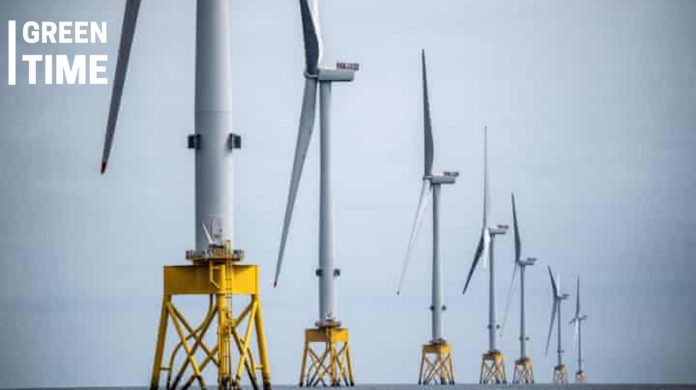The UK’s transition to net zero faces significant challenges as delays in approving new infrastructure put billions of pounds of investment in offshore wind projects and other critical upgrades at risk, according to major ports.
The British Ports Association (BPA) has urgently called on the government and Labour to address the backlog of harbour orders, essential legislation needed for ports to make necessary infrastructure changes to support offshore wind projects. The delays are impeding the country’s ability to meet its legal commitment to net zero carbon emissions by 2050.
Ed Miliband, the shadow energy security secretary, has promised that Labour will lead global efforts to combat the climate crisis if it wins the upcoming election. Port authorities are keen to capitalize on the growth of the offshore wind industry by upgrading infrastructure to support the assembly and maintenance of turbines on site. However, some ports have been waiting nearly four years for approval, far longer than expected, with some projects becoming unviable due to the delays.
The BPA, representing 350 ports and facilities, estimates it could take almost nine years to clear the existing backlog of orders. Applications are expected to rise as demand for offshore wind schemes grows. Harbour orders, issued by the Marine Management Organisation (MMO), are necessary for ports to construct new infrastructure and acquire new legal powers for planning essential upgrades.
Mark Simmonds, the BPA’s director of policy and external affairs, expressed concern over the delays, stating that a single regulatory bottleneck threatens billions of pounds in port investments and the UK’s net zero ambitions. The BPA has warned Labour that their £1.8bn manifesto pledge to upgrade UK ports could be hindered unless the approval process is expedited.
In the past two years, only four harbour orders have been approved, compared to nine in 2021. Falmouth Harbour and the Port of Southampton have experienced significant delays, preventing progress on critical projects. Industry experts attribute the delays to the MMO’s lack of legal resources.
Associated British Ports (ABP), the UK’s largest port operator, also criticized the delays. Tim Morris of ABP highlighted the need for increased capacity at the MMO or alternative processing routes to support the energy transition and enhance the UK’s trade capabilities.
Offshore wind currently provides about 17% of the UK’s energy, with a government target of 50GW by 2030. Renewable UK’s report estimated a need for £4bn investment in ports to produce 34GW of energy from floating offshore wind by 2040. Lara Moore of law firm Ashfords noted that projects are failing at early stages due to the prolonged consent process.
An MMO spokesperson explained that the high volume of applications and recent fee increases have contributed to the delays. The Department for Transport stated it is working with the MMO and ports to streamline the process.
As the UK navigates these challenges, the urgent need for infrastructure development remains critical to achieving its net zero goals and fostering a sustainable future.

